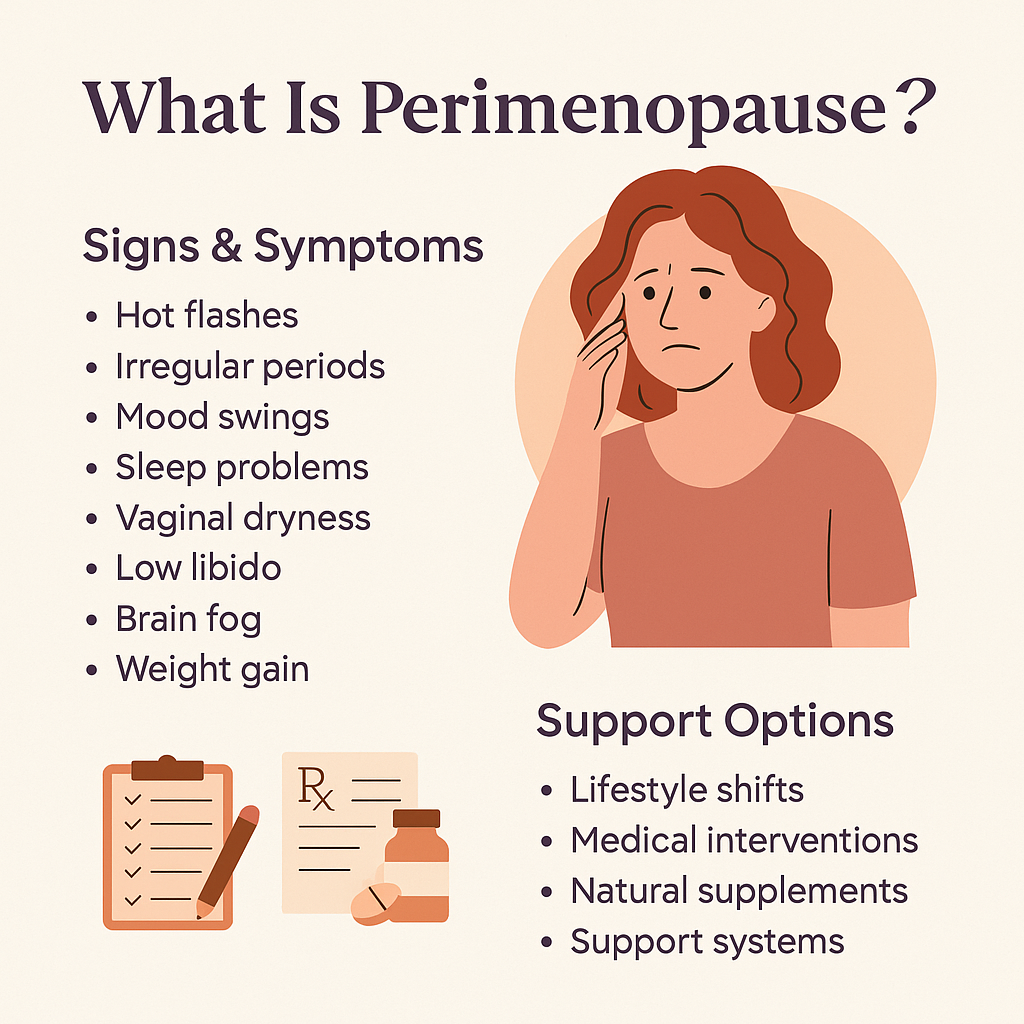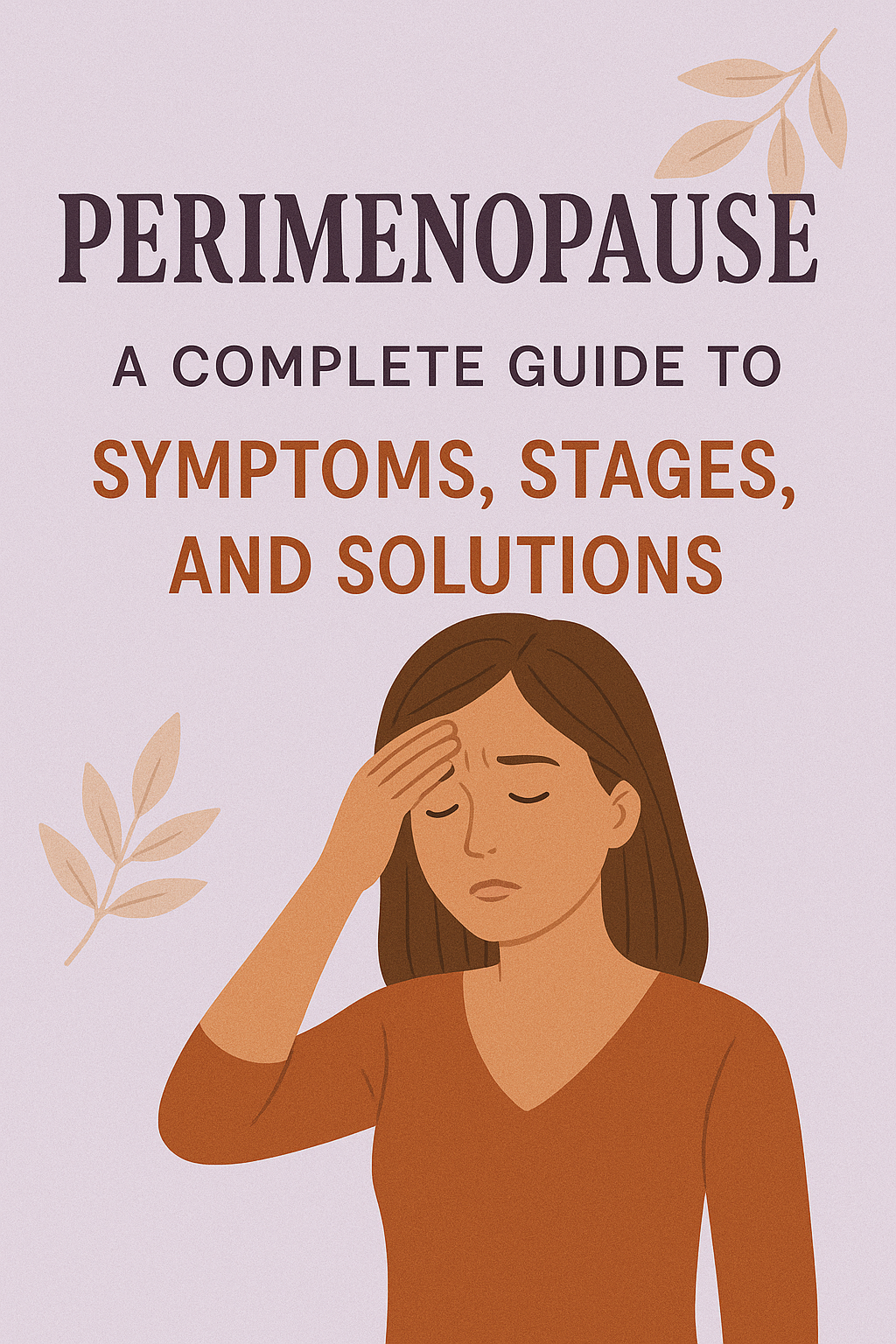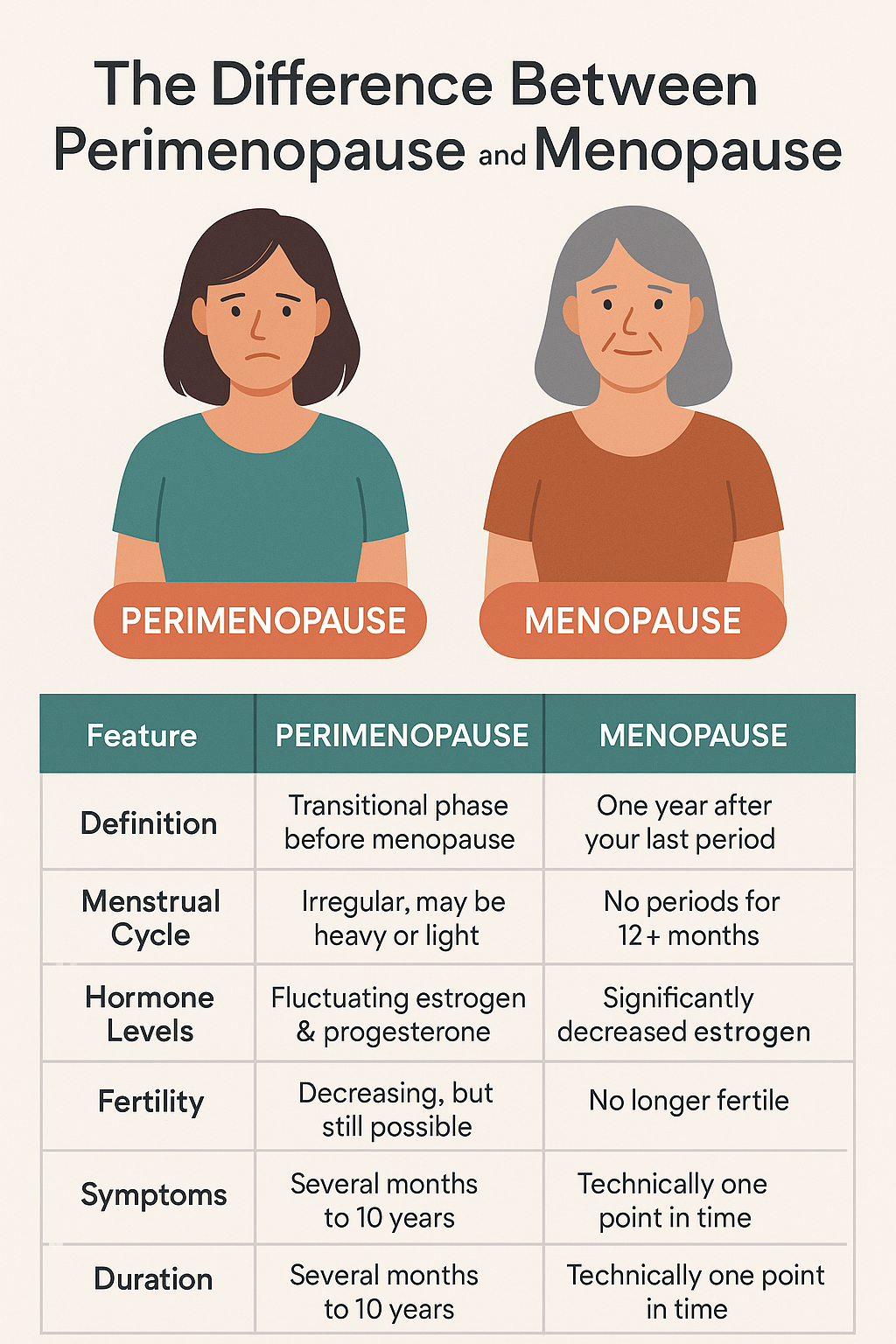
What Is Perimenopause? Signs, Symptoms & Support Options Every Woman Should Know
Perimenopause is a natural stage in every woman’s life — yet so many go through it confused, unprepared, and unsupported. Whether you're in your 30s or 40s, it’s important to understand what’s happening in your body so you can manage it with confidence.
In this post, we’ll cover:
-
What perimenopause is
-
Key signs and symptoms
-
Treatment and support options
-
When to talk to a doctor
What Is Perimenopause?
Perimenopause — meaning “around menopause” — is the transitional phase leading up to menopause, when your body’s estrogen levels fluctuate and gradually decline. This hormonal shift causes a wide range of physical and emotional changes.
It usually starts in your mid-to-late 40s, but can begin as early as your 30s. It ends once you've gone 12 months without a menstrual period, which marks the official start of menopause.
How long does it last?
Perimenopause can last anywhere from a few months up to 10 years. Every woman’s journey is different.
Common Signs and Symptoms of Perimenopause
Here are some of the most common (and disruptive) signs you might be entering perimenopause:
| Symptom | What It Feels Like |
|---|---|
| Hot flashes & night sweats | Sudden waves of heat and sweating, often at night |
| Irregular periods | Skipped cycles, heavier or lighter flow |
| Mood swings | Irritability, anxiety, or feeling emotionally off-balance |
| Sleep problems | Trouble falling or staying asleep |
| Vaginal dryness | Discomfort or pain during intercourse |
| Low libido | Less interest in sex or reduced arousal |
| Brain fog | Trouble concentrating or forgetfulness |
| Weight gain | Especially around the belly |
| Hair thinning | Noticeable loss of hair volume or texture |
| Bone loss | Early signs of osteoporosis due to low estrogen |
Pro Tip: You don’t need to have all of these symptoms to be in perimenopause. Even just one or two can indicate your hormones are shifting.
You can track these changes using tools like Flo Health or any reliable menstrual tracker.
Support Options: How to Manage Perimenopause Naturally and Medically
The good news? You don’t have to suffer through perimenopause. There are plenty of support options — both natural and medical — to help you feel like yourself again.
1. Lifestyle Shifts
Small changes can make a big impact:
-
Exercise regularly: Strength training + cardio boosts mood, metabolism, and bone density
-
Eat hormone-friendly foods: Think leafy greens, omega-3s, and foods rich in calcium and magnesium (Harvard’s guide to nutrition)
-
Stay hydrated & reduce alcohol/caffeine
-
Prioritize stress relief: Yoga, journaling, deep breathing, or simply saying no more often
More on this in our guide to hormone-friendly living.
2. Medical Interventions
For more severe symptoms, talk to your doctor about:
-
Hormone Replacement Therapy (HRT): Helps stabilize estrogen and relieve hot flashes, mood swings, and vaginal dryness
-
Low-dose birth control pills: Useful for younger women with irregular periods or acne
-
Antidepressants or mood stabilizers: In small doses, these can ease mood swings or hot flashes
See our full breakdown of medical treatments.
3. Natural Supplements & Alternative Therapies
Some women find relief with:
-
Black cohosh, maca root, or evening primrose oil (consult your doctor first)
-
Acupuncture or massage therapy
-
Cognitive Behavioral Therapy (CBT): Effective for mood and sleep issues
Explore our list of evidence-backed natural remedies.
4. Support Systems
You’re not alone. Find your community:
-
Online forums & Facebook groups
-
Work with a menopause coach or therapist
-
Talk with trusted women in your life — sharing helps
Need help finding a specialist or coach? We’ve got you covered.
When to See a Doctor
Speak to your healthcare provider if you experience:
-
Very heavy, long, or more frequent periods
-
Extreme mood swings or depression
-
Uncertainty about whether it’s perimenopause
-
Fertility or contraceptive concerns
You may need blood work or hormone panels to confirm what's going on.
Final Thoughts: You’re Not Alone
Perimenopause isn’t talked about nearly enough — but it affects millions of women. The more we understand about our changing bodies, the more empowered we become.
Whether you choose natural remedies, medical support, or a combination of both, the key is to listen to your body and get the support you need.


